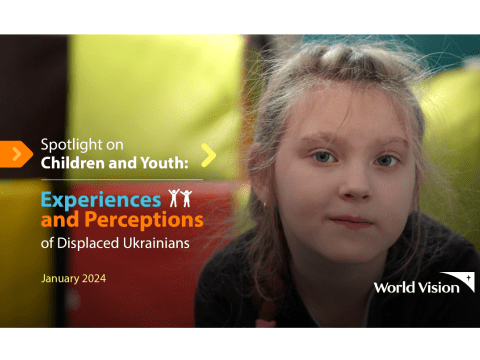Spotlight on Ukraine's Children and Youth: Experiences and Perceptions
Download
Key Findings and Trends
- Safety and Security: A recurring theme is the importance of safety and stability. Children in Ukraine long for pre-conflict normalcy, while those displaced appreciate the relative safety in host countries. However, it is worth noting that in Georgia specifically, adolescent girls aged 15-16 in Tblisi and Batumi mentioned several examples of times when they feel unsafe or at risk of sexual harassment.
- Family and Social Connections: The presence of family and maintaining friendships are vital for children’s well-being. This is consistent across locations and age groups. Children reported some challenges in adapting and making new friends in their host countries, and particularly in Moldova, where young boys – as opposed to young girls who often said they were happy in their new home and made friends despite linguistic barriers – cited challenges in adapting to their new home and making friends due to language and limited activities.
- Educational Concerns: Education is a significant worry, especially for older children. Disruptions in Ukraine and challenges adapting to new educational systems in host countries, along with language barriers, particularly in Romania, are major concerns. In Georgia and Moldova, children often highlighted challenges with the curriculum and adapting to different teaching styles.
- Cultural Adaptation and Identity: Displaced children express mixed feelings about cultural adaptation, grappling with a sense of loss regarding their Ukrainian identity and efforts to integrate into local cultures. This was a shared concern across all countries and sex.
- Recreational Activities: Engagement in hobbies and recreational activities provides comfort. However, limitations in access to such activities are noted, in terms of affordability, particularly in Romania, and availability. Younger children in Romania and Georgia talked about their appreciation for the different facilities and activities available while participants in Moldova often felt facilities were lacking.
- Coping Strategies: In terms of coping strategies, boys generally focused on physical activities and hobbies as a way to handle negative feelings or overcome issues, while girls typically highlighted activities like listening to music, reading, going for walks, and social interactions. These trends were similar across countries, highlighting the importance of understanding age and gender-specific needs and priorities
Share



